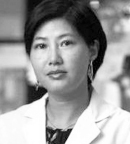
Fossie Wong-Staal, PhD
The origin of the human immunodeficiency virus (HIV) has been traced back to Kinshasa, in the Democratic Republic of Congo, around 1920, when the virus crossed species from chimpanzees to humans. It wasn’t until the 1980s that epidemiologic data began to sum up the number of people who were infected with HIV or had developed AIDS. The HIV/AIDS saga is rife with human and sociopolitical drama and pioneers whose research uncovered HIV as the cause of AIDS, which eventually led to the development of life-saving drugs. One of the most prominent figures in that scientific triumph was Fossie Wong-Staal, PhD, the first researcher to clone HIV and determine the function of its genes. Dr. Wong-Staal died on July 8, 2020, at the age of 73.
Named After a Typhoon
Dr. Wong-Staal was born Yee Ching Wong in Guangzhou, China, in 1946, to parents who, like many Chinese citizens of that generation in the late 1940s, fled to Hong Kong to escape the deprivations caused by the Communist Revolution. Her father was in the import-export business, and her mother was a devoted homemaker.
During her formative years in Hong Kong, Dr. Wong-Staal attended Maryknoll Sisters School, where she was a standout science student, garnering accolades from teachers who suggested she relocate to the United States to further her scientific ambitions. One teacher, concerned with assimilation challenges, suggested that Dr. Wong-Staal change her given name to one more Western. The massive typhoon Flossie had recently hammered Southeast Asia, and Dr. Wong-Staal’s father chose that very name for his daughter, commenting that his young daughter was also a “force of nature.”
She left Hong Kong at the age of 18, to attend the University of California, Los Angeles (UCLA). Her intellect and prodigious work ethic blossomed in the new environment, and she earned a bachelor’s degree in bacteriology in just 3 years, graduating magna cum laude. Dr. Wong-Staal thrived at UCLA, remaining there for her PhD in molecular biology in 1972, after which she did her postdoctoral work at the University of California, San Diego (UCSD), where her research efforts took root.
Move to NCI
Asked why molecular biology was her chosen field, Dr. Wong-Staal replied: “I think at the time when I chose molecular biology, it was an era when there were a lot of exciting things happening. Cloning was discovered with the restriction enzymes, so things were just becoming possible. I think the oncogenic viruses and the reverse transcriptases also were discovered around that time, maybe a little bit later…. So, it was a very exciting field. I mean, it was sort of what physics was like a decade before.”
In 1973, Dr. Wong-Staal’s career took a sharp upward turn when she moved to Bethesda, Maryland, to work at the National Cancer Institute (NCI), studying retroviruses with Robert Gallo, MD, who was a pioneer in HIV research. Dr. Wong-Staal and Dr. Gallo quickly united in both intellect and energy, as they searched for the cause of HIV, which had recently penetrated the U.S. population, stymying health-care experts across the nation. In 1983, the hard work paid off, and along with Luc Montagnier, PhD, in France, Dr. Wong-Staal and her NCI colleagues simultaneously discovered that HIV was the virus that caused AIDS.
First to Clone HIV
In 1985, Dr. Wong-Staal became the first researcher to clone HIV, which led to the primary genetic map of the virus and the development of the first blood test for HIV.
In 1990, she returned to the West Coast, joining the staff at University of California, San Diego, where she continued her research efforts at the newly opened Center for AIDS Research. Not long after, she became the Center’s Chair.
Several years later, Dr. Wong-Staal became Vice President and Chief Scientific Officer for Genomics at the upstart company Immusol. A year into her tenure there, Dr. Wong-Staal saw the need for better drugs to treat hepatitis C, and she moved Immusol’s therapeutic focus into the hepatitis C market. It was during this bold restructuring that Discover magazine named Dr. Wong-Staal one of the world’s 50 most important women scientists. In 2019, she was inducted into the National Women’s Hall of Fame.
Quiet Yet Confident
Her colleagues and friends remembered her as a woman who navigated a pitilessly competitive, male-dominated research world with quiet confidence, always there to support and mentor young researchers, many of whom went on to distinguished careers.
In her later years, Dr. Wong-Staal took up ballroom dancing, as a way to decompress from the rigors of bench research. But her husband, Jeffrey McKelvy, noted that even on the dance floor, her competitive nature got the best of her. “It became a passion, and she took it really seriously, as she did most things.” Soon they were entering ballroom dance contests.
In addition to her husband, she is survived by two daughters, a sister, two brothers, and four grandchildren.

